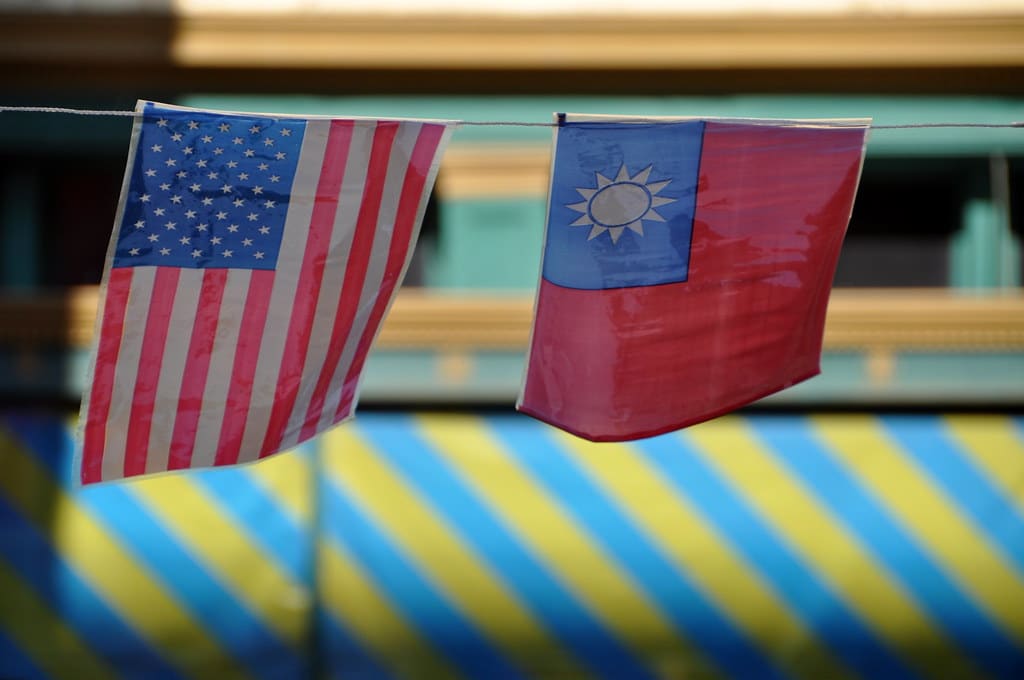A U.S.-Europe Rift Fuels Closer U.S.-Taiwan Relations?

Ukraine and Taiwan are two entirely unrelated issues, yet many insist on drawing parallels between them. Some believe that “today’s Ukraine” foreshadows “tomorrow’s Taiwan”—arguing that if Russia’s invasion of Ukraine is not stopped, it will only embolden China to pursue “reunification by force” with Taiwan. They also contend that if Trump is willing to “abandon” Ukraine, he would certainly do the same to Taiwan, especially since he has previously stated that Taiwan is too far from the U.S. for effective military defense.
However, the situation has now changed. More and more people believe that Trump is playing a “grand chess game”—that the real reason behind the U.S. distancing itself from Europe is to shift its focus to the Indo-Pacific region. In other words, Taiwan need not worry about being “abandoned” by the U.S. On the contrary, Washington’s willingness to risk damaging U.S.-Europe relations is seen as a strategic move to prioritize Taiwan.
On March 28-29, U.S. Secretary of Defense Pete Hegseth visited the Philippines and met with President Ferdinand “Bongbong” Marcos Jr. This marked the first stop of his tour to U.S. allies in the Pacific. During the meeting, he reaffirmed the United States’ firm commitment to the U.S.-Philippines Mutual Defense Treaty and emphasized that the U.S. is strengthening ties with regional allies, including its close partner the Philippines, in order to stand together against China and achieve peace through strength.
The logic behind this seems self-evident: Ukraine holds no direct interest for the United States, whereas Taiwan is deeply tied to America’s national interests. At the core of U.S. national interests is high technology, and Taiwan is at the very heart of that core.
Since Trump took office, U.S.-Taiwan relations have continued to warm.
On March 31, The Wall Street Journal published an opinion piece titled “Trump Administration’s Frequent Moves Against China Give Taiwan Hope for U.S. Support.” The subtitle read: “Taiwan once worried about the Trump administration’s shift on Ukraine, but as threats from China escalate, Taipei has grown more confident in gaining U.S. support.”
The article pointed out that recently, the U.S. has taken steps to cut off China’s access to advanced technology while issuing two public statements on Taiwan with language certain to provoke Beijing. Earlier this month, the governor of Alaska visited Taiwan to promote a plan to sell natural gas to the energy-starved island. Additionally, last month, the Trump administration quietly lifted a previously frozen $870 million military aid package for Taiwan and sent two warships through the Taiwan Strait.
At the same time, U.S. military instructors have been carefully maintaining their training pace with Taiwan’s armed forces, while political engagement between Washington and Taipei has also intensified. Officials from the White House National Security Council, the U.S. State Department, and the Pentagon have provided assurances to their counterparts in Taipei.
Last Friday, Taiwan’s “Deputy Minister of National Defense,” Po Hung-hui, attended a ceremony in South Carolina, where a portion of the F-16V fighter jets—purchased by Taiwan for $8 billion—were officially delivered. It was a rare visit by a senior Taiwanese official to the U.S., though conducted with a low profile.
In mid-March, the United States backed a G7 statement that noticeably dropped previous wording favored by Beijing regarding Taiwan. Around the same time, the U.S. State Department edited its website, removing the statement “We do not support Taiwan independence” from the page outlining U.S.-Taiwan relations.
Sensing stronger U.S. support and the rapid warming of U.S.-Taiwan relations, Taipei responded with a tougher stance against Beijing. Not only did Taiwan designate China as a “hostile external force,” but it also intensified efforts to eliminate pro-Beijing influence within the island. Additionally, Taiwan increased its defense budget, raising it from 2.5% to 3.0% of GDP—stating that this would be the minimum going forward. The U.S., however, hopes Taiwan will increase this spending to 10% of GDP.
Will a closer U.S.-Taiwan relationship shield the island from military conflict with China? This is the million-dollar question that many are seeking to answer.
KS Liu is a well-known Chinese language political commentator based in the U.S. He is a regular contributor to 中美印象 (The Monitor’s Chinese language publication).
The views expressed in this article represent those of the author(s) and not those of The Carter Center.








